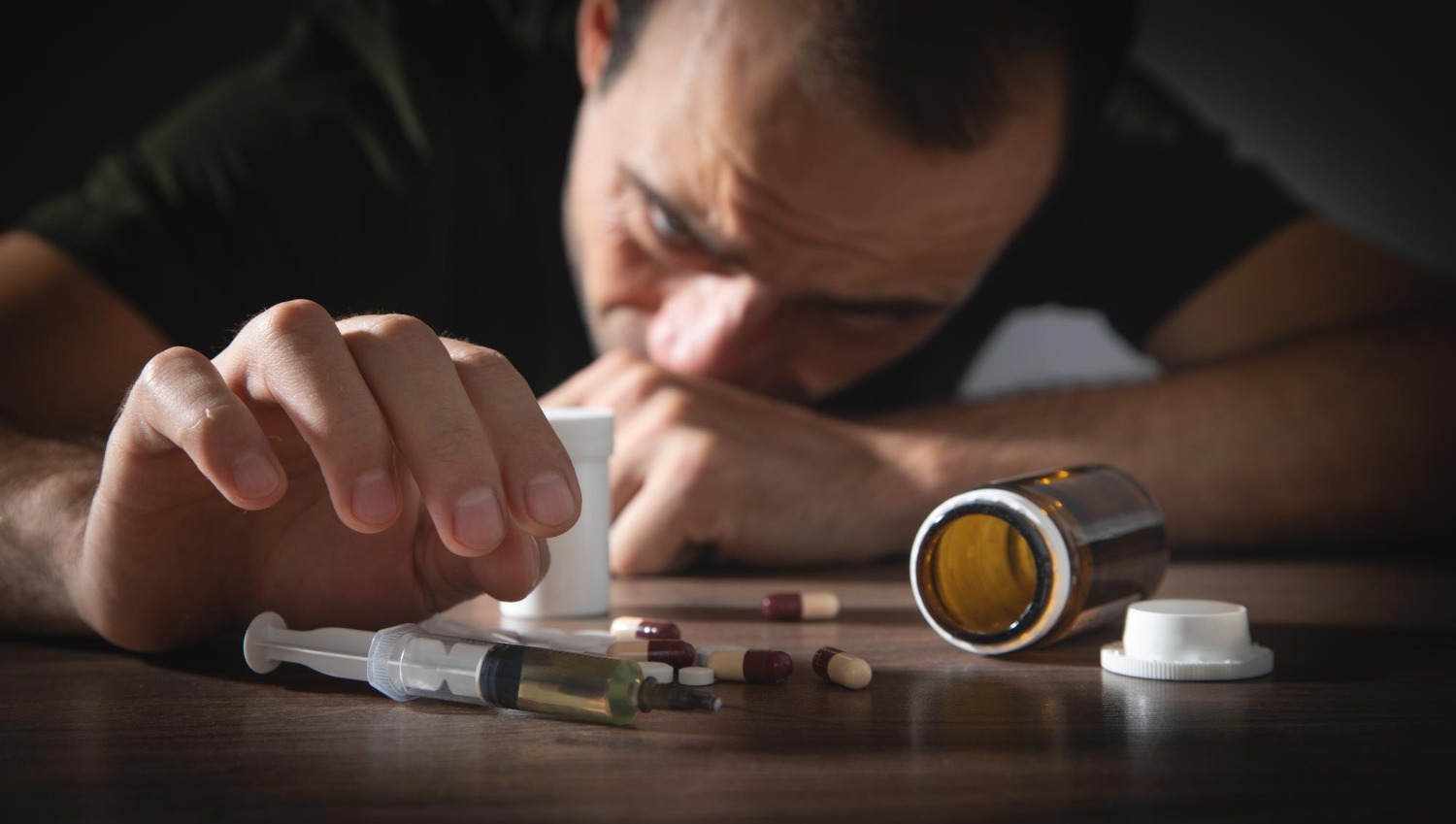Post-Traumatic Stress Disorder (PTSD) and Addiction
Substance use disorders (SUD) and post-traumatic stress disorder (PTSD) are chronic, debilitating conditions that frequently co-occur. A person struggling with a dual diagnosis needs individualized care, as neglecting one piece of the puzzle can intensify the other. If you can take action with appropriate and personalized treatment, recovery is possible.

- Post-traumatic stress disorder (PTSD) is a mental health condition triggered by experiencing or witnessing a traumatic event.
- Symptoms of PTSD include flashbacks, intrusive thoughts, physical symptoms of stress, avoiding people, places, or ideas connected to the trauma, irritability, being on edge, recurring nightmares, difficulty sleeping, risky behavior, loss of interest, and persistent negative feelings.
- Around 13 million Americans report having a PTSD diagnosis in any given year.
- Studies have demonstrated a significant connection between experiencing trauma and addiction.
Common Symptoms of PTSD
Post-traumatic stress disorder (PTSD) is a condition characterized by the development of symptoms following exposure to one or more traumatic events. It is categorized under ‘Trauma- and Stressor-Related Disorders’ in the DSM-5. A traumatic event or experience could include natural disasters, ongoing emotional or physical abuse, or witnessing a tragic death.
A key characteristic of PTSD is a persistent “fight or flight” feeling that continues for weeks, months, or even years beyond the traumatic experience.
There are a variety of signs and symptoms of PTSD. Each person with a PTSD diagnosis has endured unique trauma, which creates a need for an individualized treatment approach.
Symptoms of PTSD may include the following:[1]
- Flashbacks or reliving the traumatic event
- Distressing and intrusive thoughts that occur randomly
- Experiencing physical symptoms of stress, such as excessive sweating or nausea
- Avoiding people, places, or ideas connected to the traumatic experience
- Feeling irritable and easily angered, leading to aggressive behaviors
- Being on guard and easily startled by noise or movements
- Having recurring dreams or nightmares about the traumatic experience
- Having difficulty falling or staying asleep
- Engaging in risky or destructive behavior
- Loss of interest in previous social connections and activities
- Persistent negative feelings and pessimism about the world
PTSD Statistics
Based on recent data, an estimated 1 in 4 adults in the United States reports suffering from any diagnosable mental disorder in any given year. PTSD diagnoses occur in a smaller number of people; however, around one in 20 Americans report having a PTSD diagnosis in any year, with 13 million Americans having PTSD in 2020.[2]
- About 6% of adults will have PTSD at some point in their lives.
- Women are more likely to be diagnosed with PTSD, potentially due to a higher likelihood of experiencing certain types of trauma, including sexual violence. However, both men and women can develop PTSD from a variety of traumatic experiences.
PTSD and Addiction
Studies have demonstrated a significant connection between experiencing trauma and addiction. Many individuals who have endured trauma, such as surviving an armed robbery, a natural disaster, or abuse, turn to drugs and alcohol to cope with the emotional pain connected with their trauma.[3]
The co-occurrence of SUD and PTSD is common. This co-occurrence is believed to be a result of the fact that a person with PTSD is seeking an accessible coping skill to mitigate the extreme symptoms they experience with PTSD.
PTSD and Substance Abuse Treatment
It is essential to treat a substance use disorder alongside PTSD in an integrative manner. From detox and partial hospitalization programs (PHP) to intensive outpatient (IOP) and standard outpatient programming (OP), achieving long-term healing is possible. Treatment modalities utilized frequently to reduce symptoms of SUD co-occurring with PTSD may safely include the following:
- Psychoeducation and psychosocial support groups
- Teaching about the relationship between SUD and PTSD
- Developing healthy coping skills to reduce the impact of symptoms
- Learning how to manage negative emotions that arise
- Healing from the effects of trauma symptoms
If you or someone you love is trying their best to manage their life amidst the effects of PTSD, reach out to our Nashville Mental Health Rehab.
Cost of Dual Diagnosis Treatment for PTSD
The cost of dual diagnosis treatment depends on several factors:[4]
- Location of a treatment facility
- Types of services offered (inpatient, residential, or outpatient)
- Health insurance coverage for substance abuse treatment
Your health insurance will often cover some, and possibly all, of the services administered. Most major insurance carriers consider addiction treatment to be an essential service. However, out-of-pocket or private pay will vary depending on the type of treatment needed and the duration required. To verify your insurance, click the button below or call now.
Frequently Asked Questions about PTSD
[1] The National Institute of Mental Health. (2020). Post-Traumatic Stress Disorder. Nih.gov. Retrieved from https://www.nimh.nih.gov/health/publications/post-traumatic-stress-disorder-ptsd on 2023, July 24
[2] National Center for PTSD. (2014). How Common Is PTSD in Adults? – PTSD: National Center for PTSD. U.S. Department of Veteran Affairs. Retrieved from https://www.ptsd.va.gov/understand/common/common_adults.asp on 2023, July 23
[3] Flanagan, J. C., Korte, K. J., Killeen, T. K., & Back, S. E. (2016). Concurrent Treatment of Substance Use and PTSD. Current Psychiatry Reports, 18(8). Retrieved from https://doi.org/10.1007/s11920-016-0709-y on 2023, July 23
[4] Average Cost of Drug Rehab [2022]: by Type, State & More. (2022). NCDAS. Retrieved from https://drugabusestatistics.org/cost-of-rehab/ on 2023, July 25
[5] How Can You Tell if Someone You Know May Have PTSD? | Mount Sinai Today. (2021, June 18). Health.mountsinai.org. Retrieved from https://health.mountsinai.org/blog/how-can-you-tell-if-someone-you-know-may-have-ptsd/ on 2023, July 25
[6] How is PTSD Measured? – PTSD: National Center for PTSD. (2014). Va.gov. Retrieved from https://www.ptsd.va.gov/understand/isitptsd/measured_how.asp on 2023, July 25